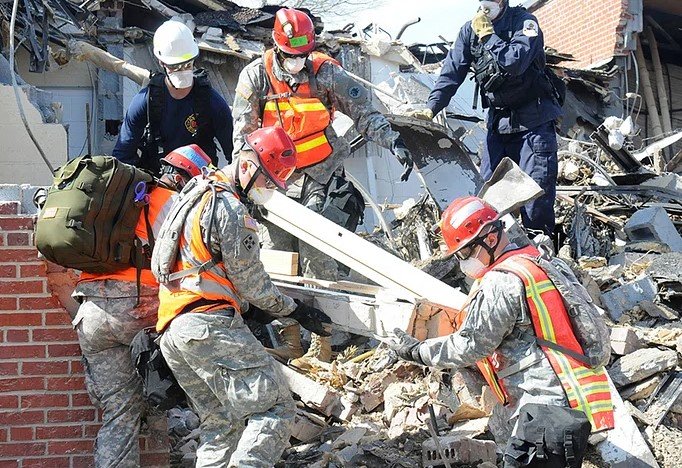A 4.7 magnitude earthquake struck Georgia, causing tremors that were felt across the region. The earthquake occurred at 08:00 local time near the capital city of Tbilisi. According to the National Seismic Monitoring Center of Georgia, the quake originated at a depth of 10 kilometers. Fortunately, there have been no immediate reports of casualties or significant damage. This event serves as a reminder of the seismic activity in the region and the importance of preparedness.
Seismic Activity and Immediate Response
The earthquake’s epicenter was located 12 kilometers east of Oni, a town in the mountainous region of Georgia. Residents reported feeling the tremors, which lasted for several seconds. The National Seismic Monitoring Center quickly issued a statement confirming the magnitude and depth of the quake. Local authorities were mobilized to assess the situation and ensure the safety of the affected communities.
Emergency services were on high alert, ready to respond to any potential incidents. Fortunately, initial reports indicated that there were no major structural damages or injuries. The swift response from local authorities helped to reassure residents and maintain order. The earthquake, while significant, did not result in widespread disruption, allowing life to return to normal relatively quickly.

The National Seismic Monitoring Center continues to monitor the situation closely. They have urged residents to remain vigilant and follow safety guidelines in the event of aftershocks. The center also emphasized the importance of having an emergency plan in place, highlighting the unpredictable nature of seismic activity in the region.
Historical Context and Seismic Risks
Georgia is no stranger to seismic activity, with a history of earthquakes affecting the region. The country is situated near several fault lines, making it susceptible to earthquakes of varying magnitudes. The most recent significant earthquake before this event was a 6.0 magnitude quake that struck Tbilisi last year, causing considerable damage and loss of life.
The 4.7 magnitude earthquake serves as a reminder of the ongoing seismic risks in Georgia. While this quake did not result in severe consequences, it underscores the need for continued vigilance and preparedness. The government and local authorities have been working to improve infrastructure and emergency response capabilities to mitigate the impact of future earthquakes.
Public awareness campaigns have been launched to educate residents about earthquake safety measures. These initiatives aim to ensure that individuals and communities are better prepared to respond to seismic events. The importance of building earthquake-resistant structures and having emergency supplies readily available cannot be overstated.
Future Preparedness and Community Resilience
In the wake of the earthquake, efforts to enhance preparedness and resilience are being reinforced. The government is collaborating with international organizations to implement best practices in earthquake preparedness and response. Investments in early warning systems and infrastructure improvements are being prioritized to reduce the potential impact of future seismic events.
Community engagement is a key component of these efforts. Local authorities are working closely with residents to develop and implement emergency plans tailored to the specific needs of each community. Training programs and drills are being conducted to ensure that individuals know how to respond effectively in the event of an earthquake.
The recent earthquake has also prompted discussions about the importance of sustainable development practices. Building codes and regulations are being reviewed to ensure that new constructions are designed to withstand seismic activity. Retrofitting existing structures to improve their resilience is also a focus area for the government and private sector.
As Georgia continues to experience seismic activity, the commitment to preparedness and resilience remains strong. The lessons learned from this earthquake will inform future strategies and actions, helping to safeguard communities and minimize the impact of future events.
